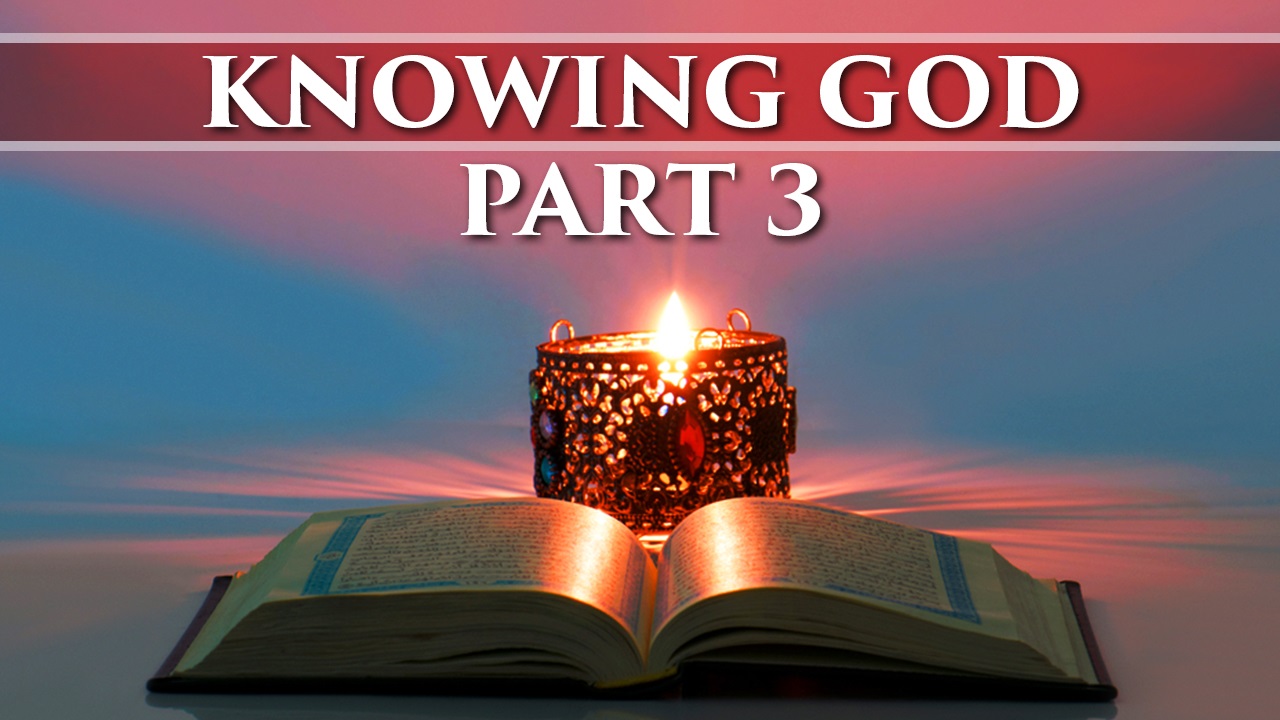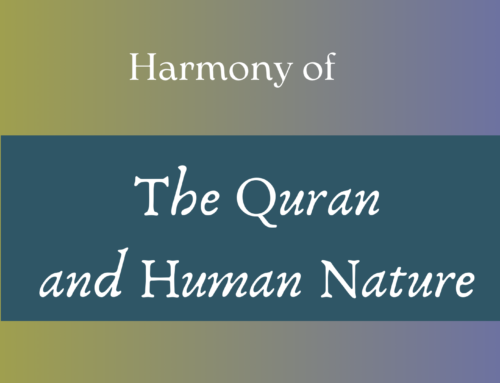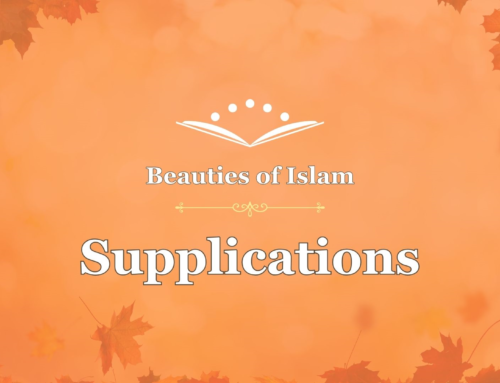Knowing God 3
There are numerous people struggling with questions like “Does God Exist?” and “Who is God? How do we know Him?” This is a huge topic – scholars can speak for hours on this topic, but we will discuss today the basics of what the Quran says about these questions.
Allah is the Arabic name for God used in the Quran, so we may use both words: God, or Allah, as needed for our discussion.
We have learned earlier that the most fundamental principle about Allah, mentioned in verse 42:11 of the Quran, is that “There is nothing like Him” – meaning there is nothing in this world which we humans have known, seen or imagined that resembles Him. Therefore, we should not try to imagine or visualize Allah on our own, with our limited knowledge and vision; rather we should learn from authentic sources what God says about Himself. So we are trying to know what the Quran says about God.
We learned in our earlier video a profound description of God from Chapter 112 which is a kind of steppingstone from where we may move further in knowing God, which is:
Allah is One, the only One, – meaning Allah is all by Himself, a singular sole entity. He has no partners, no associates who share in His power, and no family. Allah is the Eternal Refuge. Everyone needs Him – He does not need any one. “He neither begets nor is (He) begotten. He is far above this. Nor is there to Him any equivalent” (112). There is no counterpart nor anyone equal in capacity and qualities to those Allah possesses.
Now we will examine further, how to know God and the first five verses of the first chapter of the Quran called “The Opening” – gives us excellent insight about Allah. A practicing Muslim will recite this chapter at least twenty times a day in prayers. The chapter goes like this:
In the name of Allah, the Entirely Merciful, the Especially Merciful.
- All praise is [due] to Allah, Lord (Rabb) of the worlds –
- The Entirely Merciful, the Especially Merciful,
- Sovereign of the Day of Recompense. (Master of the Day of Judgment)
- It is You we worship and You we ask for help.
- Guide us to the straight path.
- The path of those upon whom You have bestowed favor,
- Not of those who have evoked [Your] anger or of those who are astray.
Let’s see these verses in some detail now.
1.Lord of the Worlds. – The Arabic word used for the Lord is “Rabb.”
The first says all praise is due to Allah – Lord of the worlds. The Arabic word used for God is Rabb which is translated in English as Lord. Rabb is a word with broad meanings which include nurturing or developing something gradually, in stages. Rabb also connotes someone who is master, owner, sustainer, provider, guardian, sovereign, ruler, and administrator. So, Allah is Rabb in the sense that Allah is the one who nurtures everything in this world and watches over them, takes care of them, and ensures stability and well-being of everything. He is the Master, Owner, Sustainer, Provider, Guardian, Sovereign, Ruler, of this world and everything in this world. Allah is the Lord of all kinds of creations…. earth, sky, sun, moon, human, jinns, animals, plants, – everything that exists in universe. Lordship of the entire universe rests with Allah alone.
- Ar-Rahman Ar-Raheem – Entirely Merciful and Especially Merciful.
Ar Rahman is one who has overwhelming love and compassion for His creation, and the word Rahman also gives an indication of passion and fervor. Rahman denotes the outpouring of love that He showers on all humans and creatures; on the whole universe, at all times, through which our life exists and we enjoy comforts and moments of happiness.
Ar Raheem is the one who showers extra mercy on those who believe in Him in perpetuity and continuity. These two names are used ideally in the invocation of God at the beginning of every important action by Muslims.
3. Master of the Day of Judgment.
Allah is the Master of the Day of Judgment. He will be sole judge on the Day of Judgment deciding affairs, rewarding righteous actions and punishing the guilty. No one will dare to speak without His permission, and no one will be able to challenge Him. We will stand before Him to give accounts of our lives on the Day of Judgment.
4-7. It is You we worship and You we ask for help, guide us to the straight path. The path of those upon whom You have bestowed favor. Not of those who have evoked [Your] anger or of those who are astray.
Further, these verses tell us that He is the only one worthy of worship, and it is only He whose help we should seek. We should seek guidance from Him to the straight path, the path of those upon whom He has bestowed His favor and not of those who evoked His anger, nor of those who are astray.
From this chapter we learned a few fundamental and important qualities of God.
qfh











